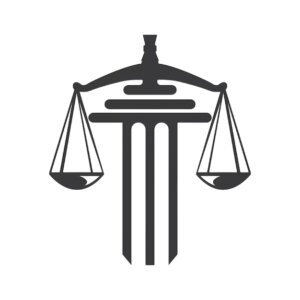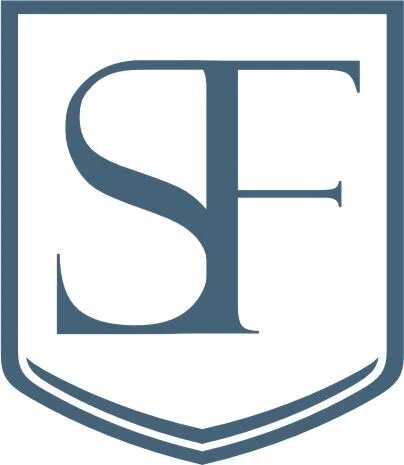Best Restructuring & Insolvency Lawyers in Sete Lagoas
Share your needs with us, get contacted by law firms.
Free. Takes 2 min.
List of the best lawyers in Sete Lagoas, Brazil
About Restructuring & Insolvency Law in Sete Lagoas, Brazil
Restructuring & Insolvency law in Sete Lagoas, Brazil, deals with the legal processes that assist individuals and companies facing severe financial challenges. This area of law provides a structured way for financially distressed businesses or individuals to negotiate with creditors, restructure debts, or, in more severe cases, undergo bankruptcy proceedings. Sete Lagoas, as part of the state of Minas Gerais, follows Brazil’s federal laws concerning restructuring and insolvency, particularly the Bankruptcy and Corporate Recovery Law (Law No. 11.101/2005), but local practices and the role of regional courts can also impact the process.
Why You May Need a Lawyer
Seeking legal assistance in restructuring & insolvency is crucial for several reasons. Common situations include:
- Facing unmanageable debts either as an individual or a business owner.
- Needing to understand your options when creditors are pursuing legal actions such as foreclosures, asset seizures, or collection lawsuits.
- Considering judicial reorganization to restructure debts and allow for business recovery.
- Responding to a bankruptcy petition filed by creditors or starting voluntary insolvency proceedings.
- Wanting to negotiate payment terms or settle debts out of court.
- Protecting personal or business assets during financial distress.
A lawyer can clarify your rights, help navigate complex legal procedures, and represent your interests in negotiations or court proceedings. They can also help ensure that all legal requirements are met and protect you from further financial and legal complications.
Local Laws Overview
Restructuring & Insolvency cases in Sete Lagoas are governed mainly by Brazil’s national statutes, especially the Bankruptcy and Corporate Recovery Law. Some key aspects include:
- Judicial Recovery (Recuperação Judicial): Allows a business to request court protection to restructure its debts while continuing to operate. The company must present a feasible recovery plan for approval by creditors and the court.
- Extrajudicial Recovery (Recuperação Extrajudicial): A more flexible, out-of-court solution for debt restructuring that still requires court approval but involves less intervention.
- Bankruptcy (Falência): Initiates a process where a company’s assets are liquidated to pay creditors in a specific order defined by law. Bankruptcy can be voluntary or initiated by creditors.
- Creditors’ Rights: Creditors must be notified and have a chance to participate in restructuring or bankruptcy proceedings, including voting on recovery plans.
- Protection of Workers’ Rights: Employees’ claims related to salaries and labor rights are prioritized in the distribution of assets.
- Role of the Judiciary: Local courts in Sete Lagoas play a significant part in supervising these processes and ensuring the rights of all parties are respected.
Local customs and the experience of the regional courts, as well as the interaction with commerce and industry entities in Sete Lagoas, can also influence how cases are managed.
Frequently Asked Questions
What is the difference between judicial and extrajudicial recovery in Brazil?
Judicial recovery is a formal court-supervised process allowing a business to restructure its debts while maintaining operations, whereas extrajudicial recovery is a private negotiation with creditors that requires later court approval but is more flexible and less formal.
Can individuals declare bankruptcy in Sete Lagoas?
Brazilian law does not allow individuals (physical persons) to file for bankruptcy, except in the case of individual entrepreneurs (empresários individuais) or sole proprietors. Individuals with unmanageable personal debts must use other legal remedies, like debt negotiation.
How does the bankruptcy process work for companies in Sete Lagoas?
If a company cannot pay its debts and restructuring is not feasible, either the company or its creditors can request bankruptcy in court. The company’s assets are liquidated under judicial supervision, and creditors are paid in a legally determined order of priority.
What protections exist for employees if my company undergoes bankruptcy or restructuring?
Employees have special protection under Brazilian law. Their claims for unpaid wages and labor rights are given priority during restructuring or liquidation.
How are creditors involved in the restructuring process?
Creditors are notified, participate in general meetings, and vote on debt restructuring plans. They may also contest certain aspects of the recovery or bankruptcy, like asset valuations or payment orders.
What role do local courts play in these processes?
Courts in Sete Lagoas oversee and approve all significant steps, such as plan approval, creditor meetings, and asset liquidation, ensuring legal compliance and fairness for all parties involved.
How long does a judicial recovery or bankruptcy process take?
The timeframe varies by complexity but can last several years, from the initial filing to final resolution. Prompt legal advice may help streamline the process and avoid unnecessary delays.
Is it possible to regain control of a business after bankruptcy?
In most cases, once bankruptcy is declared, the company’s management loses control, and a court-appointed trustee manages the liquidation. Control may be regained only if the business undergoes successful restructuring and the court approves it.
Are out-of-court settlements effective for debt issues?
Yes, out-of-court negotiations can be effective, especially for simpler cases. However, they must eventually be formalized and approved by the court in some instances to offer broad legal protection.
Can I face personal legal consequences for my company’s insolvency?
Generally, business debts in Brazil do not transfer to owners personally unless improper conduct (such as fraud or mismanagement) is proven. However, individual liability may arise in special circumstances.
Additional Resources
If you need more information or support related to restructuring & insolvency in Sete Lagoas, consider contacting:
- The Commercial Registry of Minas Gerais (Junta Comercial do Estado de Minas Gerais - JUCEMG) for company status and documentation.
- Sete Lagoas Forum (Fórum de Sete Lagoas) for access to judiciary processes and case information.
- The Brazilian Bar Association (Ordem dos Advogados do Brasil - OAB, Seccional Minas Gerais) for referrals to qualified lawyers.
- Sebrae Minas Gerais for business advice, especially for small and medium enterprises facing financial difficulty.
- Local accounting and business consulting firms specializing in recovery and insolvency issues.
Next Steps
If you are facing serious financial difficulties or think your business may need restructuring or bankruptcy protection in Sete Lagoas, consider these steps:
- Gather all financial documents, including debt records, contracts, and correspondence with creditors.
- Consult with a qualified restructuring & insolvency lawyer in Sete Lagoas to evaluate your options and understand the best legal solutions for your situation.
- Avoid making large payments or asset transfers before seeking legal advice, as this could impact your legal standing.
- Consider financial counseling or support from organizations like Sebrae if you are a business owner.
- Prepare to cooperate with your lawyer and, if necessary, with the courts to ensure a smoother process.
Timely legal advice can help you protect your assets, minimize losses, and, if possible, facilitate business recovery. An experienced lawyer will guide you at every stage, from initial assessment to the completion of restructuring or insolvency proceedings.
Lawzana helps you find the best lawyers and law firms in Sete Lagoas through a curated and pre-screened list of qualified legal professionals. Our platform offers rankings and detailed profiles of attorneys and law firms, allowing you to compare based on practice areas, including Restructuring & Insolvency, experience, and client feedback.
Each profile includes a description of the firm's areas of practice, client reviews, team members and partners, year of establishment, spoken languages, office locations, contact information, social media presence, and any published articles or resources. Most firms on our platform speak English and are experienced in both local and international legal matters.
Get a quote from top-rated law firms in Sete Lagoas, Brazil — quickly, securely, and without unnecessary hassle.
Disclaimer:
The information provided on this page is for general informational purposes only and does not constitute legal advice. While we strive to ensure the accuracy and relevance of the content, legal information may change over time, and interpretations of the law can vary. You should always consult with a qualified legal professional for advice specific to your situation.
We disclaim all liability for actions taken or not taken based on the content of this page. If you believe any information is incorrect or outdated, please contact us, and we will review and update it where appropriate.










